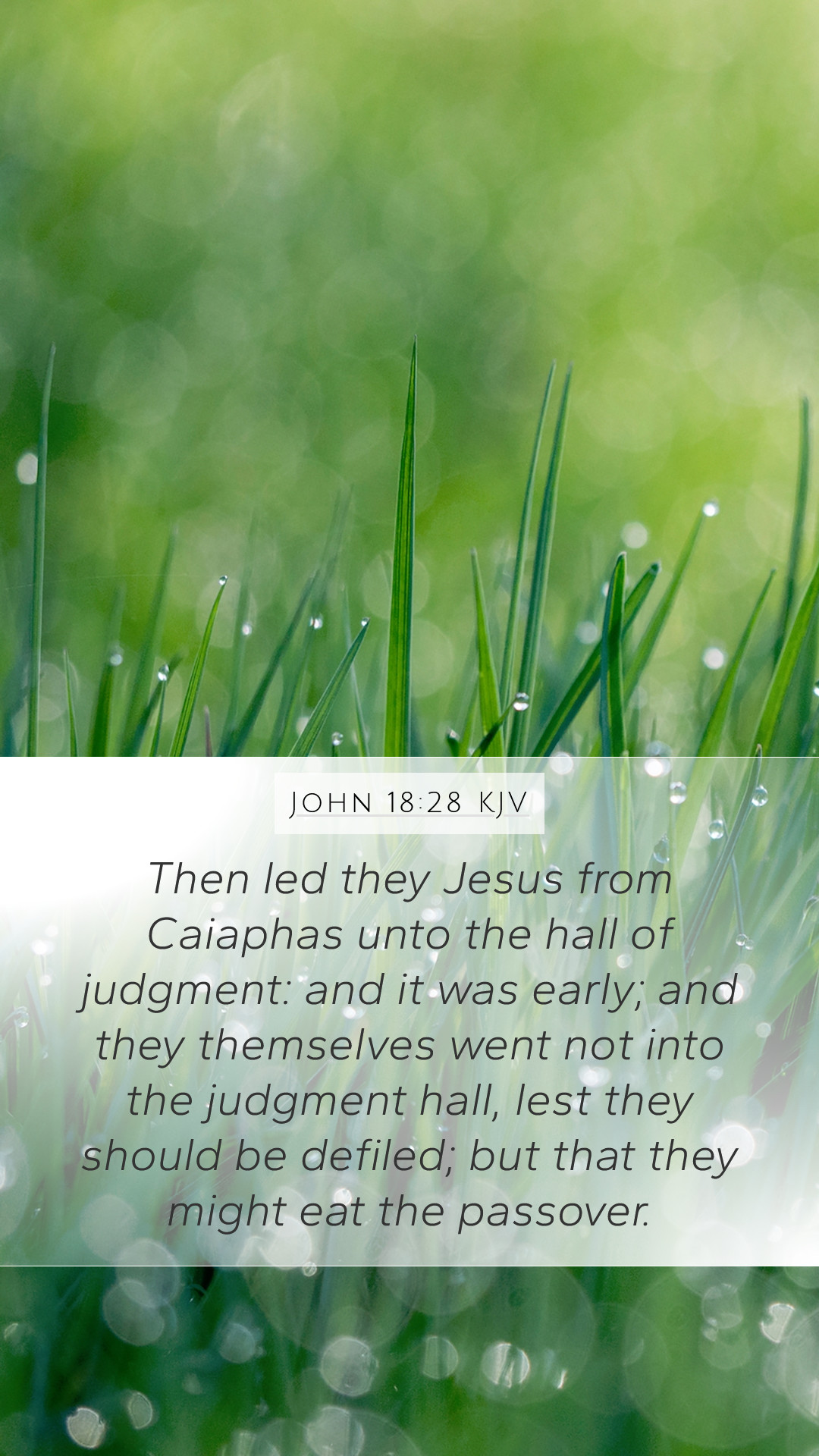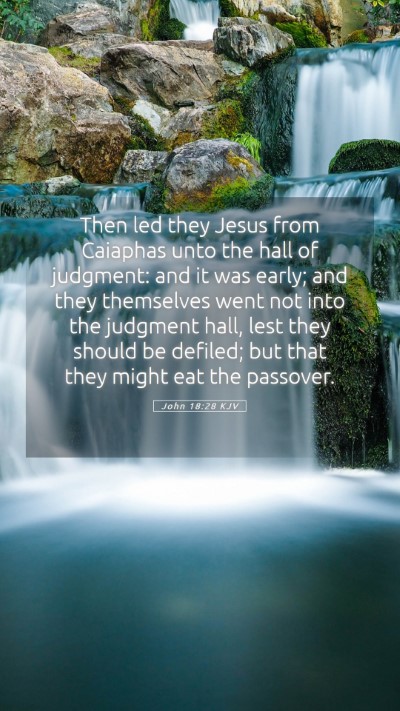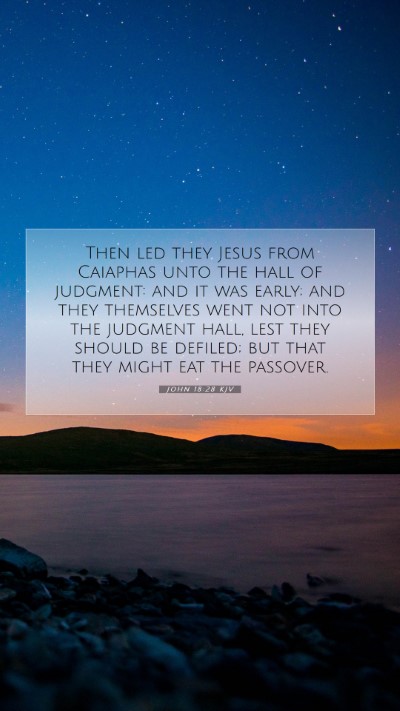Understanding John 18:28
In this article, we delve into the Bible verse meanings of John 18:28, exploring its rich context and interpretations through the lenses of public domain commentaries including those of Matthew Henry, Albert Barnes, and Adam Clarke.
Text of John 18:28
"Then they led Jesus from Caiaphas to the hall of judgment: and it was early; and they themselves went not into the judgment hall, lest they should be defiled; but that they might eat the passover."
Verse Commentary
Contextual Background
The events surrounding John 18:28 take place after Jesus' arrest. This verse sets the stage for the final unjust trials Jesus faced before His crucifixion. It reflects the tension between the religious leaders' desire for justice and their adherence to ceremonial laws which forbade them from entering a Gentile judgment hall.
Insights from Matthew Henry
Matthew Henry interprets this verse within the framework of hypocrisy demonstrated by the religious leaders of that time. He points out that they were more focused on their ceremonial cleanliness than on the moral implications of condemning an innocent man. This highlights the contradiction in prioritizing ritual over righteousness.
Insights from Albert Barnes
Albert Barnes expounds that the phrase "that they might eat the Passover" carries significant weight. He illustrates that the religious leaders were concerned about maintaining their purity to participate in the Passover feast, a critical aspect of Jewish identity and law. His analysis draws attention to their outward religiosity, which starkly contrasts with their inner corruption.
Insights from Adam Clarke
Adam Clarke emphasizes the irony present in this verse; the very act of rejecting Jesus—who embodied the essence of the Passover Lamb—underscores their spiritual blindness. He notes the importance of the historical and cultural context, drawing parallels between the tension of the trial and the importance of the Passover in Jewish tradition.
Theological Implications
This passage indicates a pivotal moment in the narrative of Jesus' passion. It illustrates the extent to which the Jewish leaders went to avoid ritual defilement, contrasted with their willingness to engage in grave injustices. The moral lessons drawn from this are rich for modern readers, emphasizing the importance of integrity and the dangers of religious hypocrisy.
Application to Daily Life
As we reflect on John 18:28, modern believers are encouraged to examine their own lives for consistency between belief and action. The behavior of the religious leaders reminds us that outward appearances can be deceptive, prompting an inward focus on the purity of our hearts rather than mere external compliance.
Cross References
- Matthew 27:1-2 - The council's decision to deliver Jesus to Pilate.
- Mark 15:1 - The account of Jesus being brought before Pilate.
- Luke 22:66-71 - The trial before the council.
- John 13:29 - Mention of the Passover in a different context.
- Romans 3:10 - The universal nature of sin.
Conclusion
In conclusion, John 18:28 serves as a profound reflection on the nature of accountability, the significance of traditional practices, and the complexities of human morality. Through a careful Bible verse commentary and the use of Bible study tools, believers can explore the meaning of Bible verses like this one, enhancing their understanding of Scripture and refining their walk of faith.


